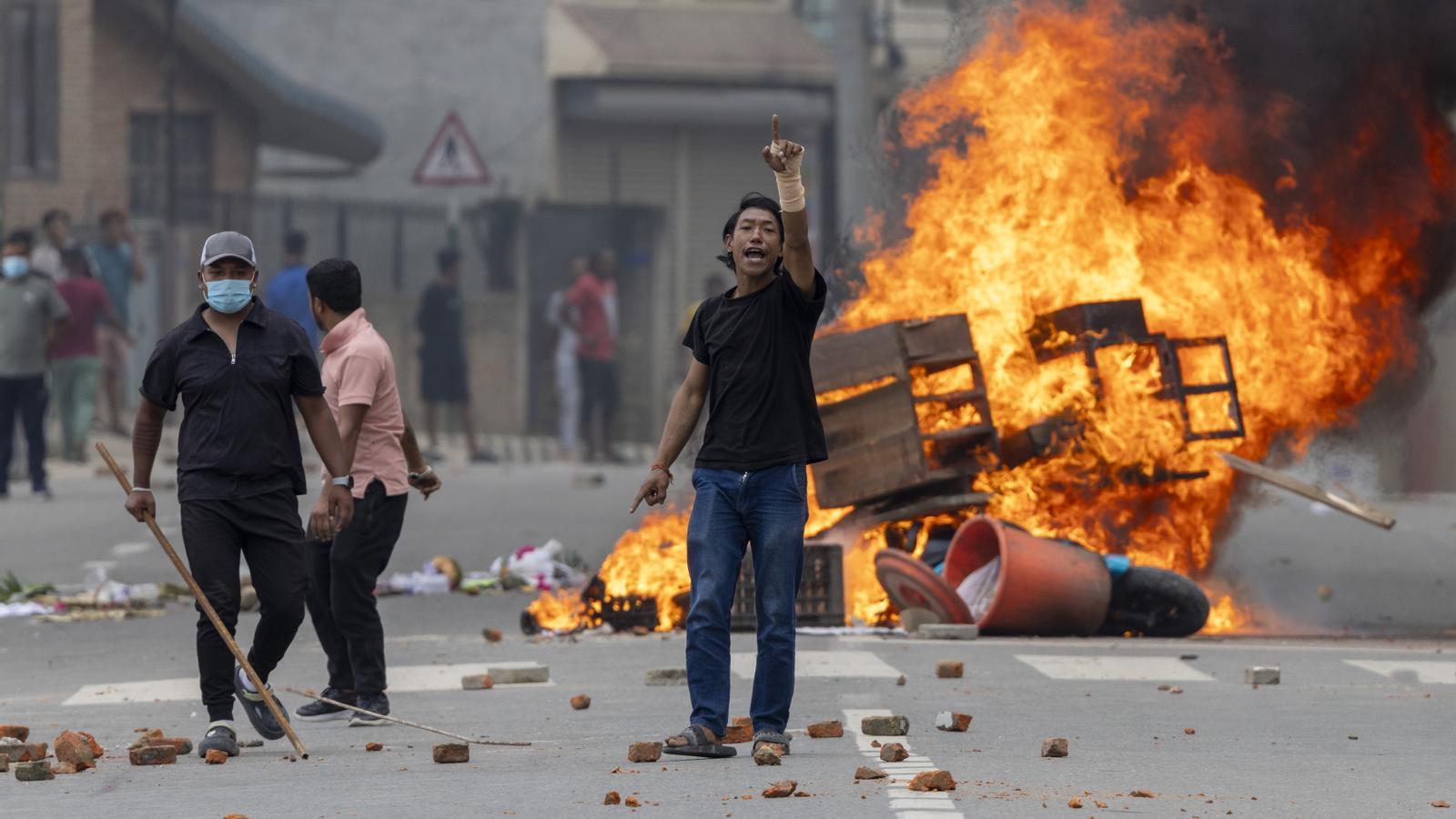Generation Z erupts against corruption in Nepal and forces the prime minister to resign.
A wave of protests against corruption and digital censorship leaves at least 21 dead and leads to the fall of Sharma Oli.

BarcelonaNepalese Prime Minister Khadga Prasad Sharma Oli resigned Tuesday amid an outbreak of mass protests that have resulted in the deaths of at least 25 people due to police repression. Nineteen people died on Monday and another six today, Tuesday, according to Efe. In addition, 90 protesters are receiving medical treatment in various hospitals. The political crisis the country is experiencing is unprecedented since the establishment of the federal republic in 2008.
In the early hours of Tuesday, the crisis took a qualitative leap. Protesters not only defied the curfew and the presence of the army in the streets of Kathmandu and other cities, but also attacked and set fire to the private homes of the current Prime Minister Sharma Oli, in the town of Balkot, in the center of the country, and of former President Sher Bahadur Deuba. They have also attacked and burned the headquarters of the Nepali Congress party in Sanepa, a gesture that represents a direct attack on the establishment., as well as the seat of Parliament. As a result of the protests, one of the victims was Rajyalaxmi Chitrakar, wife of former Prime Minister Jhalanath Khanal, after protesters set fire to the politician's house in the capital, with her inside.
Late Tuesday, Nepal's army chief invited protesters to participate in a dialogue to find a solution to the country's current political crisis. In a video message posted on social media, General Ashok Raj Sigdel reminded the army that it is committed to safeguarding national unity and territorial integrity, and urged protesters to show restraint and engage in dialogue to overcome what he called an "uncomfortable situation." Sigdel also expressed his condolences for the victims of the protests.
The demonstrations by the so-called Generation Z have been called against corruption and the government's attempt to ban social media. The brutal police response has marked a turning point in the political landscape of this territory of 29.6 million people, sandwiched between two giants, India and Tibet, colonized by China.
Oil had taken office for the third time in July 2024. Other public buildings and party headquarters have also been vandalized, and the military has had to evacuate ministers and senior government officials by helicopter while protecting Parliament and other key institutions. On Tuesday, flights to Kathmandu's international airport were suspended for security reasons.
What caused the outbreak of violence?
It all began with the government's attempt to ban 26 social media platforms, in a country where almost half the population is online and where young people find the internet a source of information and opportunities. Although the ban was lifted following Monday's incidents, protests spread like wildfire. All of this is evidence of a much deeper malaise, rooted in the country's vast economic inequalities, made visible through the viral campaign against the so-called "nepo kids": the politicians' children accused of enriching themselves thanks to nepotism and showing the xarxes a life of luxury.
The complaint evidences the corners of a corrupt system that excludes a large majority of the population, especially the young people. Atur affects 22% of those between 15 and 24 years old and 30% of those between 25 and 30 years old, which is why many must emigrate. Emigration contributes a third of the GDP with its remittances. the Minister of Agriculture and the Minister of Water Supply had also left office, making it impossible for Óleo to continue.
Z, the undisputed protagonist of the mobilization, demands not only name changes but also structural reforms against corruption. real.
